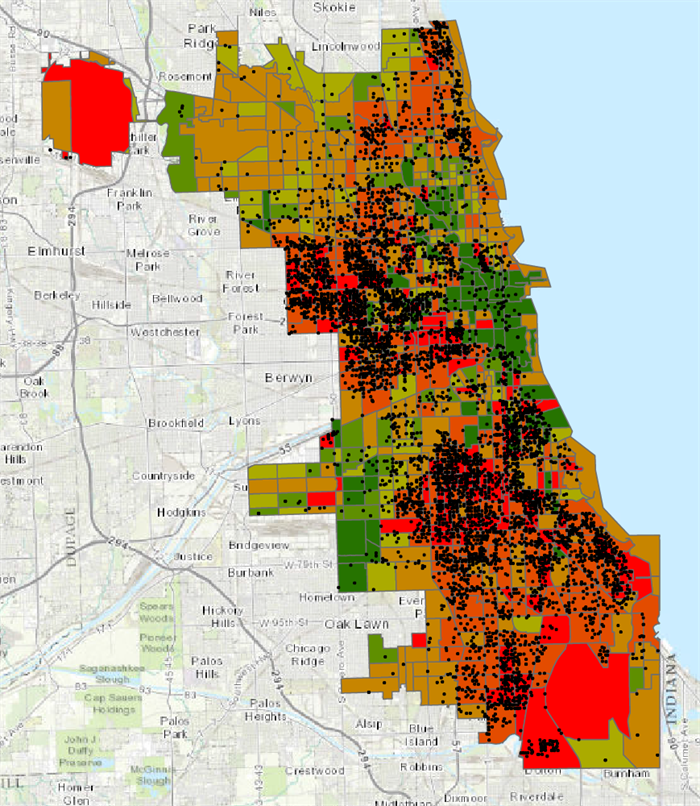
Flickr user Brandon Anderson (cc)
Does a spike in crime in one decade lead to population loss in the next?
While it’s unclear if homicides cause population loss, a Metropolitan Planning Council (MPC) analysis shows that homicides during the 1990s are associated with population loss witnessed in Chicago during the decade that followed.
In exploring the relationship between homicides and population loss, MPC was particularly interested in the 1990s, and that decade's possible impact on the dramatic population loss between 2000 and 2010. The '90s was one of the deadliest periods in the city’s history, with an average of more than 800 homicides a year.
In general, census tracts with the most homicides between 1991 and 2000 were those that experienced the sharpest declines in population between 2000 and 2010. For instance, our analysis shows that Chicago census tracts that averaged at least two homicides a year between 1991 and 2000 collectively saw nearly a 19 percent reduction in population between 2000 and 2010. Conversely, census tracts that had less than two homicides during that 10-year period collectively saw a slight population gain.

Concentrations of homicides during the 90's (black dots) tend to correllate with tracts that saw more population loss the following decade (those tracts that are darker shades of yellow, orange and red).
What we know about depopulating areas in Chicago suggests that several other factors may also be associated with population loss. In addition to higher levels of homicides, these areas also have elevated levels of unemployment, lower performing schools, more foreclosures, higher housing instability and pronounced economic disinvestment, among other critical indicators.
Efforts to revitalize those neighborhoods will likely need to address those issues just as much as they address the violence.